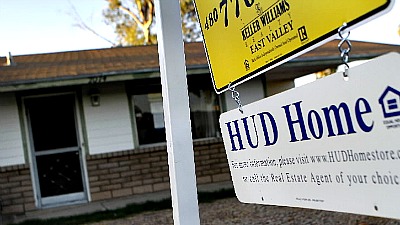 Board-certified real estate attorney Gary M. Singer answers housing questions in this space each Friday. To ask him a question about short sales, mortgages, refinancing, homeowner’s associations or any other residential real estate topic, click here.
Board-certified real estate attorney Gary M. Singer answers housing questions in this space each Friday. To ask him a question about short sales, mortgages, refinancing, homeowner’s associations or any other residential real estate topic, click here.
Q: I read in the paper that the banks are starting the foreclosures again. I just got served with a foreclosure lawsuit. Can you explain the process in layman’s terms? – Tony
A: Each state has different versions of the foreclosure process. In Florida, a lender must get permission from a judge before it can repossess your home.
When you are served with a foreclosure lawsuit, your lender files a “complaint” against you, laying out the facts as it sees it. It’s basically telling a story as to why it thinks that it should get your house as payment toward the debt that you owe.
Along with the complaint, it serves several other documents, such as the “summons,” which gives the court power over you, and the “lis pendens,” which is a document filed in the public records to let everyone know that the property is the subject of a lawsuit.
When you are served with a lawsuit, you typically have 20 days to respond or you will be in “default,” which means that you have waived all of your defenses to the lawsuit, allowing the bank to proceed with the foreclosure. This is not a good idea. Which why hiring a real estate lawyer from a trusted real estate litigation law firm is the best option. At this point, your Manchester solicitor will respond to the suit with a “motion to dismiss” or an “answer.” If your attorney feels that the bank has no chance to win based on everything that it alleged in the complaint, he or she will file a motion to dismiss the suit.
If, however, the suit is not defective as filed, your attorney will file an answer, in which he or she admits or denies each of the bank’s statements from the complaint. The answer also will also set forth your “affirmative defenses.”
An affirmative defense explains why the bank should not get your home even though you may not be making your mortgage payments.
At this point in the lawsuit, several months or more will have gone by and the attorneys will begin “discovery.” That’s the process of getting to the truth by asking each other questions and getting documents from the other side for review.
During the discovery phase, you and your lender will probably go to a “mediation.” In a mediation, both you and your lender will lay out your side of the story before an unbiased third party, the mediator, who will encourage you both to voluntarily settle the case. At a mediation no one is forced to settle the case. Both sides need to agree.
The discovery process can take six months or more. Once it is complete, you or your lender may make a “motion for summary judgment,” which is basically saying to the court that your side of the case is so strong that there is no possible way for you to lose. Most foreclosure cases end at the summary judgment hearing because the judge rules for the lender. But if the judge feels there are still some questions to be answered, there will be a trial. At trial, the judge (or jury) will determine the truth and decide who wins the case.
If you win, the lender has failed and you keep your house. If the lender wins, which is much more likely, the judge will set a date for your home to be sold, with the proceeds from the sale going toward paying your lender back for the money that you borrowed.
If the fair market value of your home is not enough to pay your loan back in full, your lender may ask for a “deficiency judgment.” That gives the lender the right to come after you for the difference between the market value of your home and the amount that you owe your lender.
If the sale brings more money than you owe your bank, you get back what’s left over.
If you hire an attorney, the entire process typically will take about two years, during which time you can be working with your lender toward a loan modification, short sale or deed in lieu of foreclosure. That is why you need to hire an experienced real estate lawyer who will use his years of practice to obtain the desired result. Of course, if all else fails, there is always bankruptcy, but that’s a different topic for another column.
The information and materials on this blog are provided for general informational purposes only and are not intended to be legal advice. No attorney-client relationship is formed, nor should any such relationship be implied. Nothing on this blog is intended to substitute for the advice of an attorney, especially an attorney licensed in your jurisdiction.
The author of this article is: Paul Owers
See the original post at: http://weblogs.sun-sentinel.com/business/realestate/housekeys/blog/2011/11/ask_a_real_estate_pro_the_fore_1.html
At GayRealEstate.com, we keep you updated with all the gay realtor, lesbian realtor, gay realty, gay real estate and general real estate news affecting the LGBT community coast to coast, and in your neighborhood.
Click here for list of gay realtors, lesbian realtors and gay friendly realtors Nationwide.
If you have a real estate story that you’d like to share with us with the gay and lesbian real estate community, please contact us at: manager@gayrealestate.com

